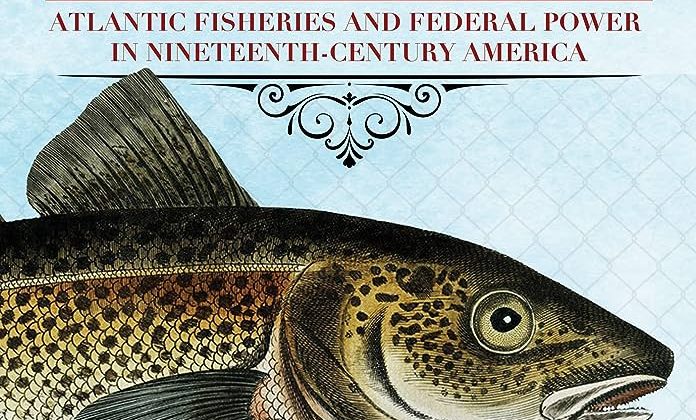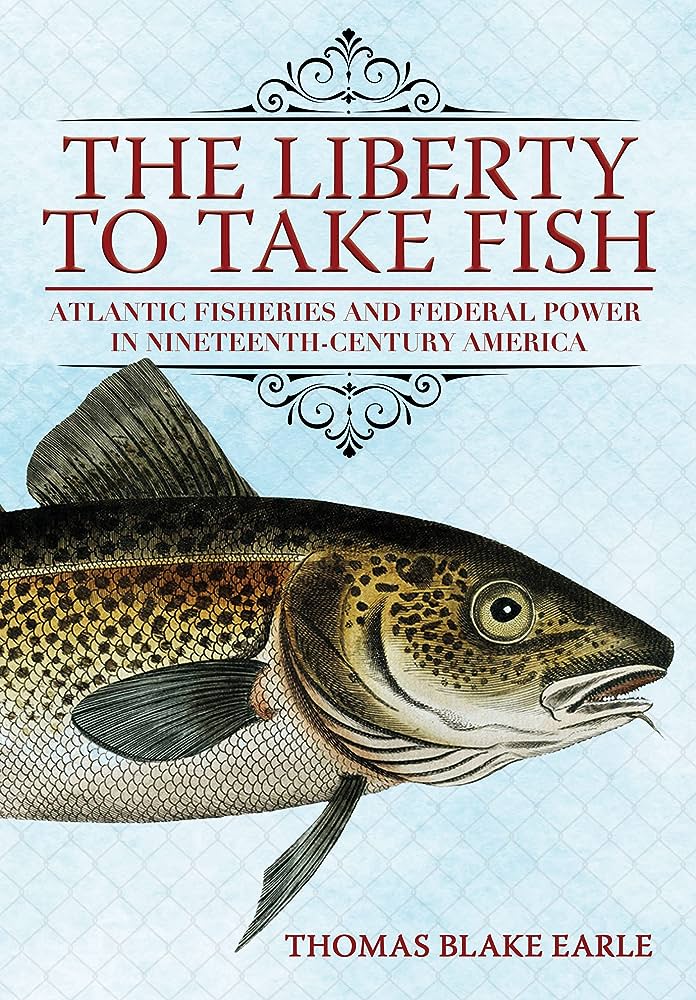

Thomas Blake Earle is Assistant Professor of History at Texas A&M University at Galveston. This interview is based on his new book, The Liberty to Take Fish: Atlantic Fisheries and Federal Power in Nineteenth-Century America (Cornell University Press, 2023).
JF: What led you to write The Liberty to Take Fish?
TE: I guess the shortest answer is that I needed a dissertation topic. I came into grad school wanting to write about American foreign relations during the 19th century and during my first semester at Rice University I had the good fortune to read The Mortal Sea by Jeff Bolster. I was hooked, you might say, by Jeff’s prose and the weight of his argument but I felt like there was more to the story, that there was a story of international relations alongside this tale of overfishing and environmental degradation. I soon realized, however, that just writing about fishery treaties and formal diplomacy left plenty out and made for dry writing. So as the project developed into a dissertation and then, ultimately, into The Liberty to Take Fish the primary importance of ordinary fishermen, the marine environment, and even the fish themselves emerged as the focus of much of the book and the most interesting things to research and write about.
JF: In 2 sentences, what is the argument of The Liberty to Take Fish?
TE: From the American Revolution through the Civil War-era, fishing was, for the federal government and a wide swath of Americans, about far more than just fish. The development of federal power and of American nationalism were directly linked to the fisheries issue as the nation sought to claim and defend its liberty to fish the waters of the North Atlantic in the face of international foes and domestic opposition.
JF: Why do we need to read The Liberty to Take Fish?
TE: While the story I tell is, ostensibly, an old one–the book doesn’t make it past the 1870s–to some extent we are still living with its consequences. Today many marine resources face a breaking point as overfishing around the globe pushes fisheries toward the point of collapse. It’s understandable to point to consumers as the culprit in this story of environmental decline, but I think something The Liberty to Take Fish does is remind us that, for centuries, state power has been deployed to facilitate and at times even encourage the reckless extraction of natural resources. Across much of the 19th century the American state developed, in part, as a way to expand the fishing efforts of American citizens. When we look around today and see the dire state of the world’s marine ecosystems it’s worth keeping in mind that it’s not just, or even primarily, hungry consumers that drive this process, its powerful institutions like governments, that use fishing to aggrandize their power and wealth.
JF: Why and when did you become an American historian?
TE: I suppose I can say I entered the guild while an undergraduate student at the University of Texas who wrote a thesis on the American-led boycott of the 1980 Olympics and then set my sights on grad school. But I started thinking historically much earlier. While still in elementary school, on a family trip that took us to the San Jacinto battlefield near Houston, I remember seeing a granite marker that simply read “Houston wounded and horse killed under him.” The fact that now I was standing in that same place, a place in the shadow of an enormous obelisk, near a dreadnought battleship with endless oil refineries on the horizon, had me thinking “how did any of this get like this?” And it seemed to me that being a historian would be the only way to answer that question.
JF: What is your next project?
TE: I’ll be leaving behind the chilly waters of the North Atlantic for the warmer waters of the Gulf. For my next project I am studying conflict along the coast of Texas during the last quarter of the 20th century sparked by the arrival of thousands of Vietnamese refugees in the aftermath of the Vietnam War. Many of these newly arrived Texans settled in fishing towns like Palacios, Rockport, and Seadrift, and, to the chagrin of their white neighbors, took jobs in the shrimp and crab fisheries. A combination of racism, cultural misunderstandings, declining catches, and an increasingly toxic marine environment made friction and even outright violence a fact of life for many on the coast.
JF: Thanks, Thomas!